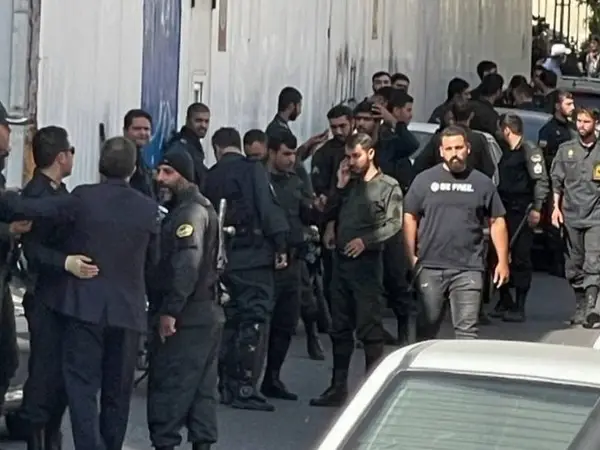The UN special rapporteur on human rights in Iran has released his latest report, portraying the grim situation of protesters and the regime’s bloody crackdown.
In his latest report released to media on Friday, Javaid Rehman briefed the UN human rights council at its 52nd session on the events leading up to and since the death of Jina Mahsa Amini in September, highlighting the most pressing human rights concerns up to December 31.
Rehman expressed regret that the Islamic Republic authorities continue to deny him entry to the country and reiterated his request to carry out visits to the country in accordance with the Human Rights Council resolution establishing his mandate.
The Special Rapporteur deplored the brutal response of the Iranian authorities to the protests, saying the unabated violent response by security forces reportedly led to the deaths of at least 476 persons, including at least 64 children and 34 women, 5 hundreds of protesters being severely injured and thousands being arrested, detained or incarcerated.
His report is derived from many submissions and multiple online and in-person meetings with victims of the human rights violations, their families and lawyers, civil society and human rights organizations, government officials, media and other relevant stakeholders.
“The violent state response to the protests started immediately following the death of Jina Mahsa Amini, contrary to the reports by Iranian authorities, which claim that security forces were instructed to act with tolerance and restraint,” read the report, adding, “On the contrary, directions given by the highest state authorities point out a deliberate policy to crush protests at all costs.”
“Videos, reports and eyewitness testimonies have shown security forces (including the police, the Islamic Revolutionary Guard Crops and the Basij militia) violently cracking down on protesters and have revealed a widespread pattern of unlawful lethal use of force, including the use of shotguns, assault rifles and handguns against the protesters,” it added.
The report also said that there is evidence of deliberate killings in many cases, with security forces shooting at individuals at close range. It mentioned Minoo Majidi, a 62- year-old mother, who was shot by security forces with 167 shotgun pellets in Kermanshah and died on her way to hospital and Hadis Najafi, a 23-year-old woman who died during a protest in Karaj on September 21 after being shot multiple times in the heart, abdomen and neck.
Highlighting that at least 64 children were reportedly killed by security forces in the protests, the report mentioned some of the cases such as four girls and one boy who were beaten to death, including two 16-year-olds, Sarina Esmailzadeh and Nika Shakarami and 15-year-old Sarina Saedi from Sanandaj and a 16-year-old boy Mehdi Mousavi Nikou.
Ethnic and religious minorities who have suffered decades of systemic and systematic discrimination and persecution have been disproportionately affected in the current wave of repression with over half of the total number of those killed being from Baluchi and Kurdish-populated provinces, the report said, noting that children from the country’s Baluch and Kurdish minorities constitute 63 percent of the recorded child victims.
Expressing concern over the large number of protesters severely injured because of direct shots to the head, Rehman said that hundreds have reportedly suffered severe eye injuries or lost their eyesight due to the use of metal pellets and rubber bullets by the security forces but did not seek medical care from government facilities in fear of reprisals, torture and detention.
The Special Rapporteur also expressed deep concerns about the policy of mass arbitrary arrests and detention of protesters, that led to the arrest of more than 18,000 individuals, of whom the identity of 2,942 individuals has been confirmed.
The report also underlined the harassment of families and cover up of human rights violations and violations of the right to due process and fair trial. “The Special Rapporteur is alarmed at the execution of two protesters and the reported sentencing to death of several others after sham trials, violating the right to a fair trial and denying the right to due process,” it said.
Paying tribute to all those who have continued to communicate information despite the heavy risks, Rehman said the regime’s so-called investigations into the death of Mahsa Amini were neither credible nor transparent and have failed the minimum requirements of impartiality and independence.
The report concluded that since the start of the protests, the highest authorities of the regime have instigated violence and instructed the security forces to “confront the enemies”.
